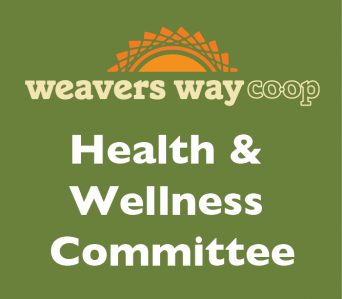
Health & Wellness Committee: Mindfulness Can — and Should — Be an Everyday Thing
Two mindfulness practitioners — one a mind-body coach and yoga instructor, the other an acupuncturist — met at a local café to chat about how mindfulness is trending in our community. They shamelessly riffed off the breakthrough Shuttle column Vegan Alert! to offer a peek into the minds of two mindful people.
R: Esther, how did you start getting into mindfulness?
E: Well, this means going way back to a much simpler time in life, before marriage and children. I served as a Peace Corps volunteer in Niger, West Africa, and found myself totally overwhelmed teaching classes of 50 or more rowdy eighth graders in stark classrooms without chalk or textbooks. At the time, I taught myself to take five deep breaths before entering the room, and to give myself a few minutes each morning to sit in silence, paying attention to the moment. I had no idea there was a word for this. And even now, I tell myself that mindfulness is essentially a catchword for doing something that rises up naturally inside of us, if we allow it: I let myself intentionally drop into life. This quiets the mind and body and builds up inner trust. What about you, Rachel?
R: I also came to mindfulness after having already practiced it as a lifestyle while working as an organic farmer. I had to be mindful of nature and my body to have the stamina to farm well all day. When I was learning to be an acupuncturist, we had a class that taught practices for being mindful of our bodies, words, actions and thoughts. The basic premise was that when we go through life mindlessly, it can lead to dis-ease. When we can choose our way of being no matter the circumstances, we enhance our wellness. It’s tough; it takes practice. I know you have been practicing mindfulness for a while, Esther.
E: I’m not someone who can change overnight, but from years of on-and-off practice I am noticing a more profound and compassionate commitment to my own and others’ fundamental well-being. I can feel that I am more antsy when I don’t practice and more open when I do. I might not meditate daily, but mindfulness shows up in the moments of everyday life when I recognize and interrupt patterns, like when I move too fast, feel impatient, judge myself and others, or get irritated at small things. Right now I’m noticing that this is sounding a lot like that Vegan Alert column in the Shuttle. What’s up with that? Are we trying to say that mindfulness is like veganism?
R: I suppose there are similarities. To be a vegan you would certainly need to be mindful about food choices. But you could probably be a mindless vegan. Chinese nutritional theory holds that without eating meat, one could become “blood deficient” and feel weak, tired and spacey. So maybe all vegans are mindless. But I want to be mindful not to make overarching generalizations. Best to ask the vegans and send them for some acupuncture. What else would people want to know about mindfulness?
E: We’re approaching the end of the year, and lots of holiday gatherings are being planned. What a great time to develop some mindfulness skills to manage difficult family situations — like when I pull a tray of burned cookies from the oven just as my hypercritical sister arrives, or when my nephew runs away just as Grandma goes in for the hug.
Learn more about how to approach this time of year in a mindful and healthy way at our workshop later this month.
Rachel Kriger, L.Ac. and Esther Wyss-Flamm, PhD, E-RYT will lead “Mindfulness for the Holidays: A Roadmap to Sanity” on Tuesday, Nov. 16, from 6:30 to 8 p.m. at Healing Arts Studio, 15 W. Highland Ave, 2nd floor in Chestnut Hill.

